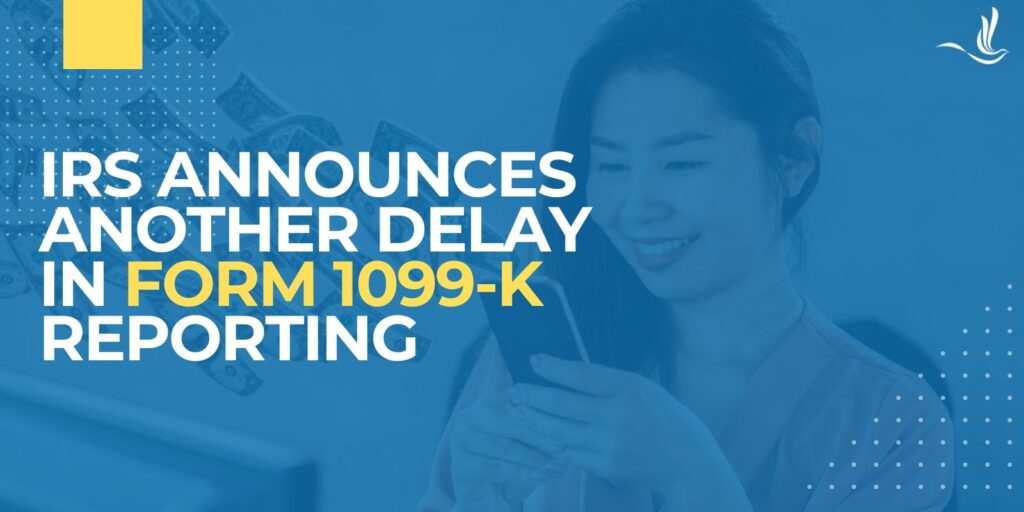
The IRS has recently announced a delay in the implementation of changes to the reporting threshold for Form 1099-K. Form 1099-K, Payment Card and Third Party Network Transactions, is used to report third-party platform payments. Originally scheduled for 2023, the IRS has decided to postpone the implementation of greater reporting thresholds. However, they’ve cited the need for additional time to address concerns and provide a smoother transition for affected parties. In this article, we will discuss the new reporting thresholds amounts and when they will be implemented.
New 1099-K Reporting Threshold for 2024
The 2023 tax year was supposed to be accompanied by a new reporting threshold for Form 1099-K. The $600 threshold would’ve been a substantial decrease from the previous $20,000 over 200 transactions. This change is part of an effort by the IRS to more accurately capture income generated through third-party payment platforms. These include those used by freelancers, gig workers, and small businesses, like Venmo, PayPal, and more. Also, if you sell on platforms like Amazon, Shopify, eBay, or Etsy, you can expect to receive Form 1099-K. Notably, Zelle is one of the only platforms that does not issue Form 1099-K.
However, due to continued taxpayer confusion over the new rules, the IRS has postponed the implementation again. They are using 2023 as yet another transition year. In tax year 2024, the threshold for IRS Form 1099-K will be $5,000. This increase will serve as a phase-in for the $600 threshold in the future. The delay allows affected parties, including payers and recipients, more time to adjust to the new reporting requirements. The phased approach aims to ease the burden on taxpayers and facilitate a smoother transition to the higher reporting threshold.
Impact on Taxpayers
The delayed implementation is expected to be well-received by taxpayers who rely on third-party platforms for income. The increased reporting threshold to $5,000 for the tax year 2024 means that individuals and businesses with lower transaction volumes may be exempt from filing Form 1099-K. This can potentially reduce the administrative burden on both payers and recipients, streamlining the reporting process. However, taxpayers need to know it is always their responsibility to report any earned income. This is true whether they receive Form 1099-K or not. Remember, the fastest and surest way of being audited by the IRS is to underreport income.
Public Input
The IRS has emphasized the importance of seeking public input on the proposed changes. The delay reflects a responsive approach to concerns raised during the comment period. This collaborative effort between the IRS and the public underscores the agency’s commitment to making informed decisions that consider the needs and perspectives of all stakeholders.
Tax Help for Those Who Receive 1099-Ks
The IRS’s decision to delay the implementation of the increased reporting threshold for Form 1099-K demonstrates a willingness to address concerns and ensure a smoother transition for affected taxpayers. The phased approach provides valuable time for stakeholders to prepare for the changes. The IRS will continue to engage with the public and refine its policies. Meanwhile, taxpayers can anticipate a more gradual and well-supported transition to the new reporting requirements. Optima Tax Relief is the nation’s leading tax resolution firm with over a decade of experience helping taxpayers.
If You Need Tax Help, Contact Us Today for a Free Consultation